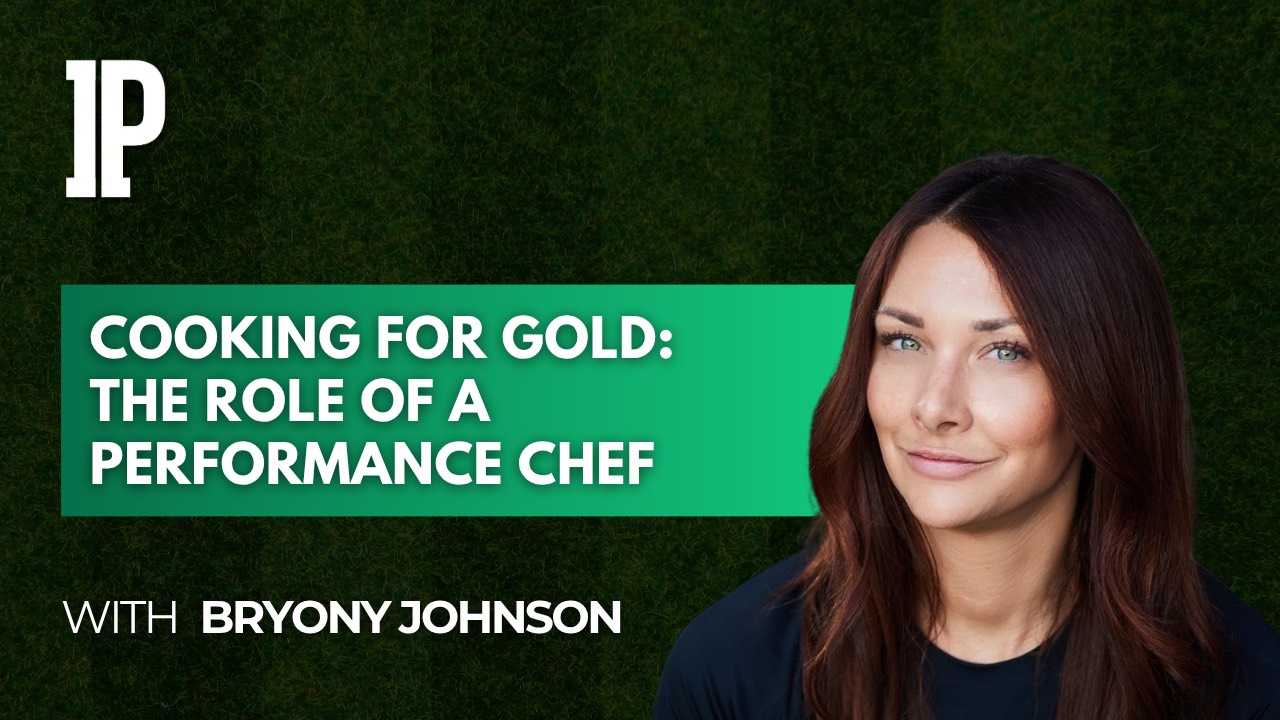Bryony Johnson - Cooking for Gold: The Role of a Performance Chef
Nov 03, 2025
Episode 201: In this episode, Andy McDonald speaks with Bryony Johnson, a Performance Chef with 19 years of experiencesupporting some of the world’s most elite athletes, including Anthony Joshua, Roger Federer, Sir Ben Ainslie, and Ellie Aldridge.
Bryony shares her journey through elite sport and the evolving role of the performance chef — bridging the gap between nutrition science and practical food delivery. She also lectures on the MSc in Sports Nutrition at St Mary’s University, Twickenham, offering future practitioners a real-world perspective on applied performance nutrition.
Drawing on nearly two decades in kitchens and high-performance environments, Bryony discusses the nuances of collaboration, the challenges of feeding athletes with individualised needs, and the impact of modern food culture on performance.
Topics Discussed:
-
The role and importance of a performance chef in sport
-
Effective collaboration between nutritionists and chefs
-
Challenges and strategies in adapting meals for athletes’ needs
-
The impact of food trends and fads on athletes’ dietary choices
-
Balancing whole foods and supplements in sports nutrition
Key Points
-
Performance chefs are integral to sports teams, providing meals that are both flavorful and nutritionally tailored to enhance athletic performance. They must understand the science of sports nutrition and apply it practically, ensuring that meals are not only enjoyable but also support athletes' specific performance and recovery goals.
-
The emergence of performance chefs reflects a growing recognition of the critical role nutrition plays in sports. Unlike traditional chefs, performance chefs focus on the nutritional value of meals, working closely with athletes to optimize their diets for peak performance and recovery, which is increasingly recognized by teams and individual athletes alike.
-
Effective collaboration between performance chefs and nutritionists is essential. This partnership allows for the seamless integration of nutritional science with culinary expertise, ensuring that athletes receive meals that are both nutritionally balanced and appealing, thereby enhancing their performance and recovery.
-
Performance chefs must be adaptable and committed to continuous learning, as the field of sports nutrition is dynamic and ever-evolving. They need to stay updated on the latest research and trends, experimenting with new ingredients and techniques to meet the changing dietary needs and preferences of athletes.
-
Personalization is key in the role of a performance chef. Understanding each athlete's unique dietary requirements, preferences, and performance goals allows chefs to tailor meals that support individual needs, fostering trust and rapport between the chef and the athlete.
-
Balancing whole foods with supplements is a critical aspect of a performance chef's role. While emphasizing a diet rich in natural, nutrient-dense foods, chefs also recognize the role of supplements in addressing specific nutritional gaps, ensuring athletes receive the necessary nutrients for training and recovery.
-
Social media and dietary trends can significantly influence athletes' perceptions of nutrition. Performance chefs play a crucial role in educating athletes about evidence-based nutritional practices, helping them make informed dietary choices that align with their performance objectives.
-
Communication skills are vital for performance chefs, who must convey complex nutritional concepts in accessible terms. This ensures athletes are engaged with their dietary plans and understand the rationale behind their nutritional strategies, promoting adherence and optimal performance outcomes.
-
Beyond meal preparation, performance chefs educate athletes on the importance of nutrition in achieving their performance goals. This educational role helps athletes develop a deeper understanding of how their diet impacts their training, recovery, and overall health, empowering them to make informed dietary decisions.
-
Feedback from athletes and nutritionists is crucial for performance chefs to refine their culinary offerings. This feedback loop allows chefs to continuously improve their recipes and meal plans, ensuring they meet the evolving needs and preferences of the athletes they serve, ultimately enhancing performance and satisfaction.
Where you can find Bryony:
Sponsors
Gameplan Performance, Gameplan Performance is a rehab Project Management & Data Analytics Platform that improves operational & communication efficiency during rehab. Gameplan provides a centralised tool for MDT’s to work collaboratively inside a data rich environment.
VALD Performance, Makers of the Nordbord, Forceframe, ForeDecks and HumanTrak. VALD Performance systems are built with the high-performance practitioner in mind, translating traditionally lab-based technologies into engaging, quick, easy-to-use tools for daily testing, monitoring and training
Hytro: The world’s leading Blood Flow Restriction (BFR) wearable, designed to accelerate recovery and maximise athletic potential using Hytro BFR for Professional Sport.




